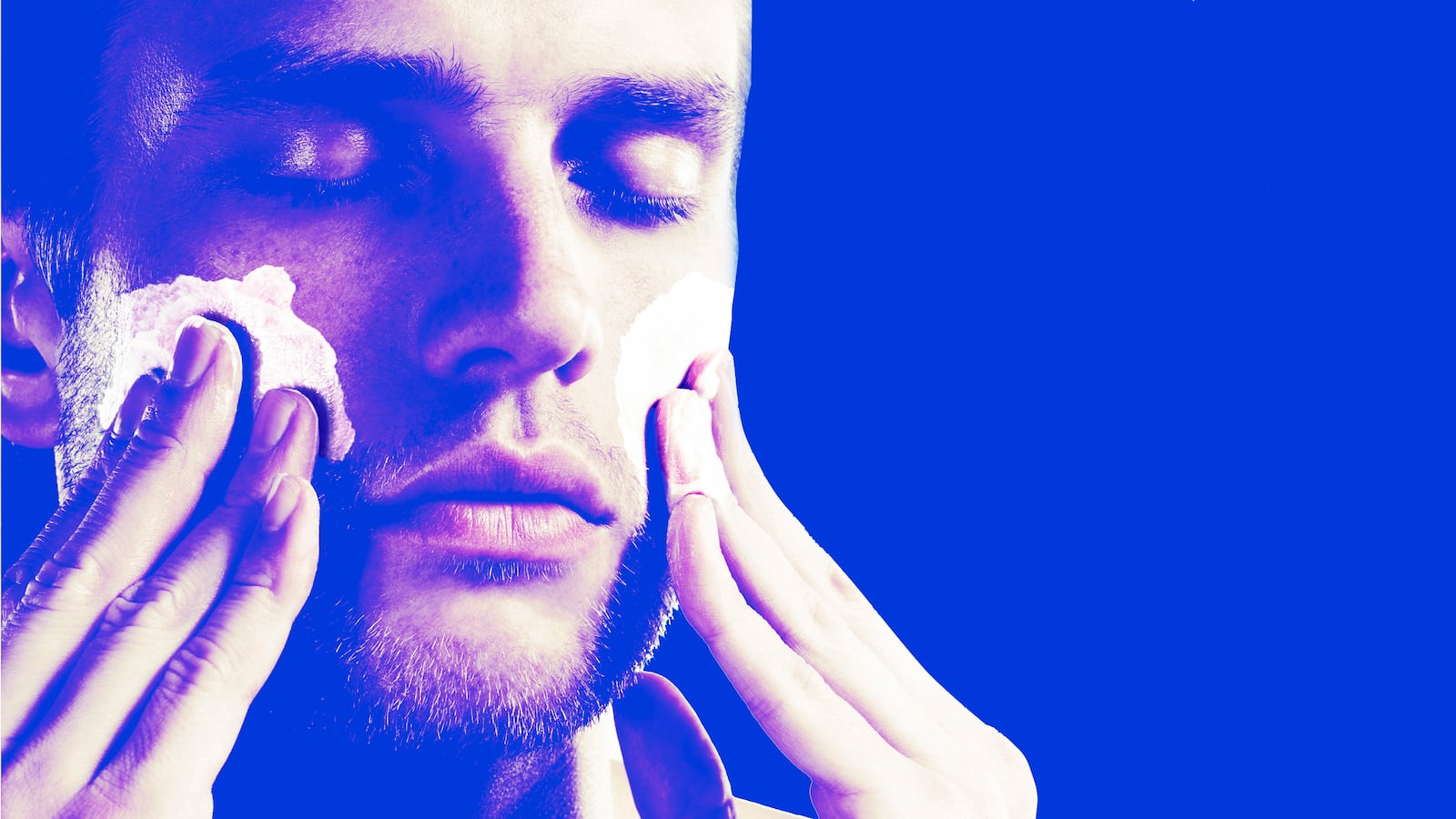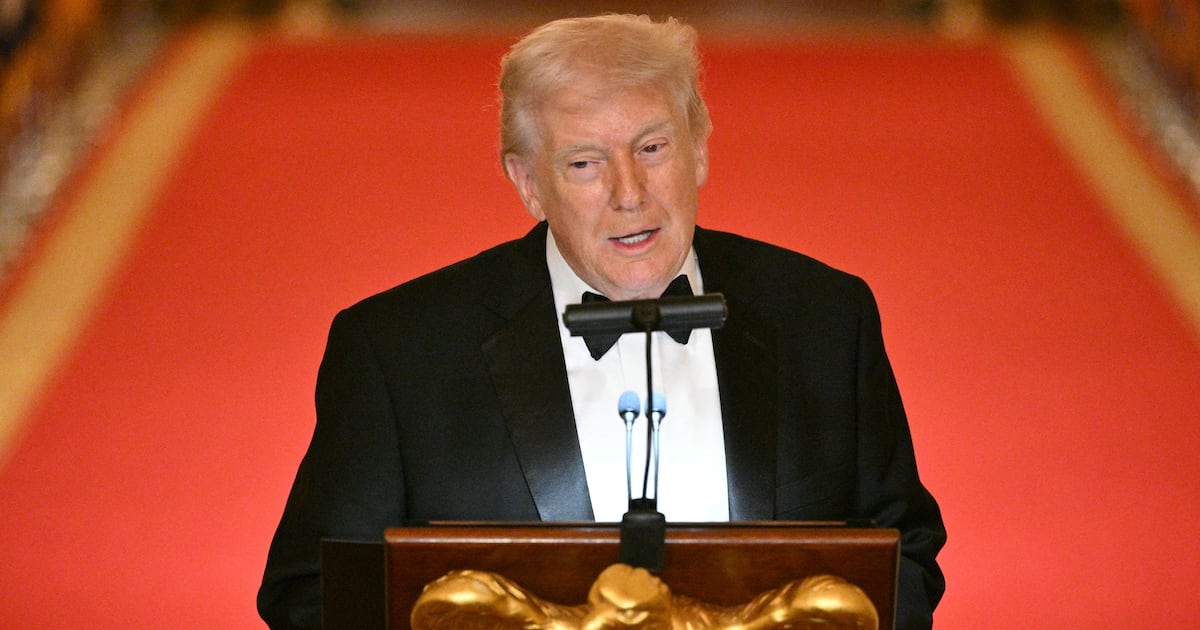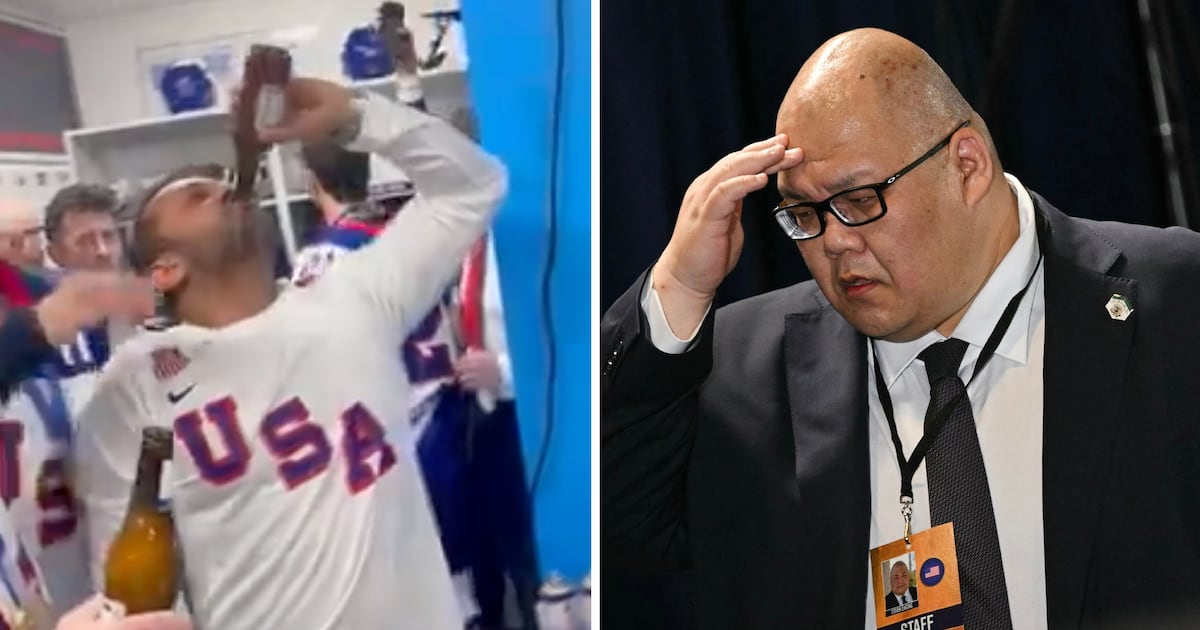For his New Year’s Resolution, Alex Wade decided to take better care of himself. He set some goals with an “improvement mentality” in mind: go vegetarian, read more books, and get into skincare.
The last part proved to be the trickiest. Wade, who is 25 and works as a software engineer in New York, tried googling products to buy online, but search results felt too mystifying. He ultimately decided to shop the old fashioned way: he threw on a coat, left his apartment, and headed to Sephora.
But perusing the skincare aisle felt like reading an instruction manual written in Mandarin. “I glanced around the skin section before I walked right out,” Wade told The Daily Beast. “Two to three days in a row, I just kind of stood in front of the facial moisturizers for five minutes before leaving. I finally asked for help and got some exfoliant and moisturizer.” Months later, Wade has stuck with the routine. With one exception: “I mainly buy online.”
Wade felt intimidated by Sephora, where shoppers can skew overwhelmingly female (though the institution has long been a haven for trans and non-binary customers). He did not know that there are a host of new self-care brands built specifically for men, each one jonesing to hook a newbie.
Just this week, two men launched Asystem, a self-care subscription service that sells a $45 three-step skincare package, supplements, and a glossy coffee table book that WWD described as “an extension of the founders’ mission of addressing men’s wellness and inspiring men to check in with themselves on their busy schedules.”
Oli Walsh and Josh Levine prefer the term “betterment” over “self-care,” with Walsh defining the term as working to improve “both you and the community around you.” By this measure, owning a face wash of eucalyptus, lavender, and bergamot fruit oils can help make you a citizen of the world.
Hims, a direct-to-consumer startup , sells generic versions of prescription drugs like Viagra and Cialis alongside gummy vitamins promising to induce sleep and promote the immune system. This brand also takes a lofty approach to encouraging men to shop its site. “Let’s walk at our full height, honor the forebears, have a smile and for god’s sake, floss,” the Hims homepage reads.

Eric Bandholz founded Beardbrand in 2012 as a grooming company. The Austin-based business now sells hair and skincare, plus apparel and accessories. He believes that when men look good, they act accordingly. “Guys are drawn to becoming better versions of themselves and making an impact on the world,” Bandholz told The Daily Beast. “How can I be a good father, husband, dad, employee? Part of that is your self-care routine.”
These companies set up shop even as pop culture grapples with how to dismantle—or soften—the gender binary. The mainstream beauty industry, which publicly catered exclusively women for more than a century, has embraced neutral advertising.
Heritage brands like Maybelline, L’Oreal, CoverGirl, and MAC have employed male spokespeople. Up-and-comers like Rihanna’s Fenty Beauty, and the Brooklyn upstart Fluide, which donates profits to LGBTQ-supporting charities, have a similar, cast-whoever approach.
“There’s certainly room in the men’s grooming market for men’s specific products,” David Yi, founder and editor of the lifestyle website Very Good Light, told The Daily Beast. “It’s important for men to be encouraged to care for themselves. I simply feel that this works for the millennial market and up though. With Gen Z, we’re seeing that products are products are products, and catering to one gender is simply outdated.”
Indeed, one Gen Z high schooler and influencer David Ruff put it bluntly. “I think self-care targeted for men is simply a heteronormative marketing strategy,” Ruff said. “We still live in a society that is prevalent with fragile masculinity. Men are constantly told not to take care of themselves of express emotion; if it isn’t an Axe commercial surrounded by women, self-care is seemingly not integral.”
“Self-care reminds me to slow down,” Ruff added. “You don’t have to subscribe to a certain gender to feel pressure and want to eradicate that.” Every night, Ruff adds mini-indulgences to his life, such as using the Ren Lavender Pillow Spray on his sheets before bed, a scent which he says reminds him to “wind down.” He’ll use eye patches in the morning from Erno Laszlo or Wander Beauty, both brands that primarily target women.
“Sure, I’ll use a product geared toward men if I like it, but I go for how the product makes me feel, not what it is supposed to make me feel because I am a certain gender,” Ruff said.
It's a principled stance, but also one that can be expensive. As Li noted, there is the so-called “pink tax” to deal with, or the fact that women are charged, on average, 13 percent more on products comparable to those in the men’s aisle.
For instance: Asystem charges $45 for a month-long supply of cleanser, moisturizer, and night cream; just one tube of cleanser from the very popular, female-focused skincare line Sunday Riley will set a shopper back $35.
Dermatologists say that, in general, men have thicker skin than women do. They also tend to have more oil glands, which means they produce more sweat. Men’s brands know this information and often use it to differentiate their skincare.
Garrett Munce, the grooming director of Esquire and Men’s Health, is wary of saying that skincare for dudes works “harder” than its feminine counterparts.
“Just because a guy is oilier than a woman sitting next to him does not mean that there is a difference in how good his moisturizer is,” Munce said. “And just because men tend to have oilier skin, that also doesn’t mean that a man can’t have dry skin, or acne, or sensitive skin.”
Still, Munce doesn’t denounce all male self-care brands. “If it makes a guy more comfortable to use a skincare product or go to a spa that says, ‘For men,’ then I’m all for it,” he said.
Munce noted that a lot of men already take care of themselves without taking the time to call it that. “Working out is self-care and eating well is self-care,” he said. “It’s more about reframing the conversation and less about repackaging it.”
A study published by Beauty Independent in April found that the men’s self-care market could hit $166 billion by 2022. So yes, we will live in a world of sheet masks “for men.” But it helps to remember that reality has already existed, unpublicized, for many, many years.
“There have been times in my life where I certainly didn’t feel comfortable with myself, but I felt totally fine walking into the women’s hair aisle and buying hairspray,” he said. “Everyone should be like that. Don’t get hung up on whether the packaging is black or pink.”







